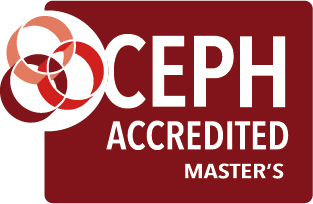CEPH Accreditation

The Council on Education for Public Health (CEPH) is an independent agency recognized by the U.S. Department of Education to accredit schools and programs of public health, health administration, and related programs nationwide. The Master of Health Administration (MHA) program at Illinois became accredited by the CEPH in October 2019. To obtain copies of the most recent final report and self-study documents, please email mha-advising@illinois.edu.
CEPH Foundational Competencies
CEPH developed 22 Foundational Competencies that are informed by traditional public health core knowledge areas as well as cross-cutting and emerging public health areas. All CEPH accredited health administration programs fulfill these foundational competencies.
|
Evidence-based Approaches to Public Health |
|
|
Public Health & Health Care Systems |
|
|
Planning & Management to Promote Health |
|
|
Policy in Public Health |
|
| Leadership |
|
16. Apply leadership and/or management principles to address a relevant issue 17. Apply negotiation and mediation skills to address organizational or community challenges |
| Communication |
|
|
Interprofessional Practice |
|
|
Systems Thinking |
|
MHA Concentration Competencies
In addition to the foundational competencies, the MHA program has identified six concentration competencies that relate to our mission. These competencies are fulfilled by four concentration courses.
|
Competency |
|
CAHME Accreditation

CAHME is recognized as an independent global leader for determining quality in healthcare management education. Universities, programs, practitioners, and peers will seek the consultation of CAHME to assess the quality of healthcare management education. CAHME is respected for its collaborative, efficient, and reliable contribution to the more effective delivery of healthcare management education, as noted by its recognition by the Council on Higher Education Accreditation
The Master of Health Administration (MHA) program at Illinois is currently in candidacy of CAHME accreditation.
Candidate status is an indication that a program in healthcare management has voluntarily committed to participate in a plan of self-improvement and is actively progressing toward the status of accreditation. Candidate status is not accredited status and does not guarantee eventual accredited status.
CAHME Competencies
|
Domain 1: Communications, Relationship Management and Interpersonal Effectiveness |
|
|
Domain 2: Critical Thinking, Analysis and Problem Solving |
|
|
Domain 3: Management and Leadership |
|
|
Domain 4: Professionalism, Social Responsibility and Transparency |
|

